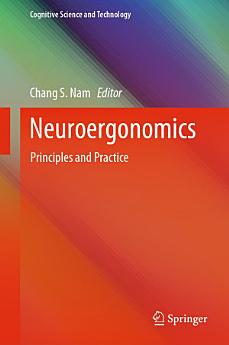Neuroergonomics: Principles and Practice
Chang S. Nam
Feb 2020 · Springer Nature
E-Book
472
Seiten
reportBewertungen und Rezensionen werden nicht geprüft Weitere Informationen
Über dieses E-Book
This book sums up key research findings, and theoretical and technological advances having a direct bearing on neuroergonomics. Neuroergonomics is an emerging area whose Neuroergonomics is an emerging area that is collectively defined as the study of human brain function and behaviour in relation to behavioural performance in natural environments and everyday settings. It helps readers to understand neural mechanisms of human cognition in the context of human interaction with complex systems, as well as understanding the change of perception, decision-making and training in humans. The authors give new insights into augmenting human performance, reflecting upon the opportunities provided through neuroergonomics research and development.
Computer systems acting on data from behavioural-output, physiological, and neurological sensing technologies are used to determine the user’s cognitive state and adapt the systems to change, support, and monitor human cognition. Various domains and case studies delve into the field of neuroergonomics in detail. These include, but are not limited to:
Computer systems acting on data from behavioural-output, physiological, and neurological sensing technologies are used to determine the user’s cognitive state and adapt the systems to change, support, and monitor human cognition. Various domains and case studies delve into the field of neuroergonomics in detail. These include, but are not limited to:
- an evaluation of technologies in health, workplace, and education settings, to show the different impacts of neuroergonomics in everyday lives;
- assessment of real-time cognitive measures;
- dynamic casual interactions between inhibition and updating functions, through analysis of behavioral, neurophysiological and effective connectivity metrics; and
- applications in human performance modelling and assessment of mental workload, showing the reader how to train and improve working memory capacity.
Neuroergonomics: Principles and Practice provides academic practitioners and graduate students with a single go-to handbook that will be of significant assistance in research associated with human factors and ergonomics, human-computer interaction, human-systems engineering and cognitive neuroscience.
Autoren-Profil
Dr. Chang S. Nam is currently professor of Edward P. Fitts Department of Industrial and Systems Engineering at North Carolina State University, USA. He is also an associated professor of the UNC/NCSU Joint Department of Biomedical Engineering, Department of Psychology and Biomedical Research Imaging Center. He received a PhD from the Grado Department of Industrial and Systems Engineering at Virginia Tech in 2003. His research interests center around brain-computer interfaces, social cognitive and affective neuroscience, computational neuroscience, and trust in human-robot interaction. Dr. Nam has received the NSF CAREER Award (2010), Outstanding Researcher Award (2010-2011), and Best Teacher Award (2010-2011). He is the main editor of “Brain–Computer Interfaces Handbook: Technological and Theoretical Advances” (CRC Press). He is a recipient of the US Air Force Summer Faculty Fellowship Program Award in 2018. Currently, Nam serves as the Editor-in-Chief of the journal Brain-Computer Interfaces.
Dieses E-Book bewerten
Deine Meinung ist gefragt!
Informationen zum Lesen
Smartphones und Tablets
Nachdem du die Google Play Bücher App für Android und iPad/iPhone installiert hast, wird diese automatisch mit deinem Konto synchronisiert, sodass du auch unterwegs online und offline lesen kannst.
Laptops und Computer
Im Webbrowser auf deinem Computer kannst du dir Hörbucher anhören, die du bei Google Play gekauft hast.
E-Reader und andere Geräte
Wenn du Bücher auf E-Ink-Geräten lesen möchtest, beispielsweise auf einem Kobo eReader, lade eine Datei herunter und übertrage sie auf dein Gerät. Eine ausführliche Anleitung zum Übertragen der Dateien auf unterstützte E-Reader findest du in der Hilfe.






